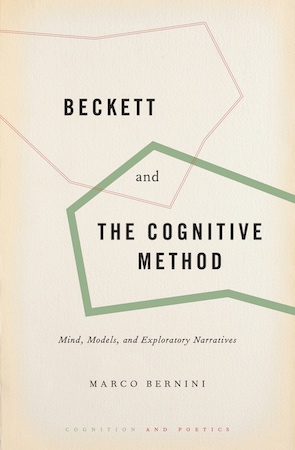Staff profile
Dr Marco Bernini
Associate Professor in Cognitive Literary Studies

| Affiliation | Telephone |
|---|---|
| Associate Professor in Cognitive Literary Studies in the Department of English Studies | +44 (0) 191 33 43265 |
| Lead of Narrative and Cognition Lab in DRP-MH in the Institute for Medical Humanities |
Biography
Career
Before taking up my current position, I have been a Marie Curie Junior Research Fellow (2012-2014) and a Wellcome Postdoctoral Research Associate (2014-2018) in the Department of English Studies at Durham University. My first postdoctoral appointment was as a IASH fellow at the University of Edinburgh (2011-2012). I am also a core member of the Wellcome Trust interdisciplinary project on auditory-verbal hallucinations ‘Hearing the Voice' at Durham University (2012-2021). I sit in the Steering Committee of the Institute of Medical Humanities. Outside Durham, I have been a member of a project on 'Narrative and Complex Systems' at the University of York (Interdisciplinary Centre for Narrative Studies) and of the 'History of Distributed Cognition' project (2014-2018; University of Edinburgh). I have been co-leading with Ben Alderson-Day (Department of Psychology, Durham) an interdisciplinary IAS Major Project on 'Dreams, Narrative and Liminal Cognition' in 2020-2022 (Durham University).
Research Interests

My research interests are in narrative theory, cognitive narratology, modernist / contemporary literature and cognitive sciences. I have mainly worked on how literary narratives portray or, as I have been arguing, properly explore cognitve processes (e.g., levels of consciousness and self, transparency and opacity in self-knowledge and metacognition, memory, mindwandering, inner speech, moods and emotions, embodied and enactive couplings with the environment, hypnagogic and hypopompic transitions, altered and hallucinatory perceptions, dream states). I also worked on an application of the extended mind view to the relationship between writing and authorial intentionality, and on a narrative approach to cognitive theories of complexity and emergence. I have a forhcoming book on Samuel Beckett and cognition (Beckett and the Cognitive Method: Mind, Models, and Exploratory Narratives) with Oxford University Press.
I would welcome PhD proposals on:
- Narrative Theory
- Cognitive Narratology
- Samuel Beckett
- Immersion, Reading and Storyworlds
- Narrative, Self and Consciousness
- Narrative, Emergence and Complexity
- Narrative, Dreams and Hallucinations
Teaching
Mind and Narrative (Level 3 Special Topic; Designed and Individually Taught)
How can literary narratives represent or explore the mind? To answer this relatively simple question, we need to undertake a quite complex, interdisciplinary journey to understand what the mind is and what it does in its everyday inner, outer, imaginative, embodied, linguistic, intersubjective, emotional, dreamlike experiences and interactions with the real world. This means first becoming familiar with contemporary cognitive scientific models of the mind and of a variety of cognitive processes, before looking at the ways whereby these have been rendered in, and explored by, literary storyworlds. This Special Topic module therefore will take on a parallel journey into the mind by comparing and contrasting cognitive science with theories of narrative. This is the agenda of the emergent field of cognitive literary studies, to which this module can be considered as an advanced introduction.
Narrative and Thresholds of Consciousness (MA level; co-designed and co-taught with Dr Peter Garratt)
Consciousness is not a monolith: it comes in degrees of awareness, agency and control. When we fall asleep or wake up, are tired or in grief, dream or meditate, wander in thoughts or get immersed in a novel, we enter a liminal zone of consciousness and cognition, where we lose some aspect of our self and witness or engage with spontaneous, intrusive, imagistic, phantasmal presences, thoughts and perceptions. Liminal cognition has only recently started to be explored by contemporary cognitive science, whereas it has been widely explored by novelists and writers of short fiction and memoirs. By critically exploring a diverse range of writing from the nineteenth century to the present, this module will assess how literature can enrich, challenge and correct cognitive scientific models of liminality. Texts studied on the module may change from year to year, but they may include works (or extracts of works) by such writers as De Quincey, Brontë, Dickens, George Eliot, George Egerton, Lewis Carroll, Henry James, Woolf, Proust, Beckett, Joyce, Mansfield, Susanna Clarke, Ali Smith, Sarah Shun-Lien Bynum, Hilary Mantel.
Esteem Indicators
- 2018: Durham Research Staff Awards: Joint first prize (together with Ben Alderson-Day, Department of Psychology).
Publications
Authored book
- Bernini, M. (2021). Beckett and the Cognitive Method: Mind, Models and Exploratory Narratives. Oxford University Press
- Bernini, M., & Caracciolo, M. (2013). Letteratura e Scienze Cognitive (‘Literature and Cognitive Sciences’). Carocci Editore
Book review
Chapter in book
- Bernini, M. (2023). Personification as Élanification: Agency Combustion and Narrative Layering in Worlding Perceived Relations. In S. Besser, & F. Lysen (Eds.), Worlding the Brain: Neurocentrism, Cognition and the Challenge of the Arts and Humanities (113-128). Brill Academic Publishers. https://doi.org/10.1163/9789004681293_009
- Bernini, M. (2022). Reading for Departure: Narrative Theory and Phenomenological Interviews on Hallucinations. In B. Alderson-Day, A. Woods, & C. Fernyhough (Eds.), Voices in Psychosis: Interdisciplinary Perspectives (108-116). Oxford University Press. https://doi.org/10.1093/oso/9780192898388.003.0013
- Bernini, M. (2021). A Panting Consciousness: Beckett, Breath and Biocognitive Feedback. In C. Saunders, D. Fuller, & J. Macnaughton (Eds.), The Life of Breath, Classical to Contemporary: Literature, Culture, and Medicine (435-459). Palgrave Macmillan, Cham. https://doi.org/10.1007/978-3-030-74443-4_21
- Bernini, M. (2020). The Heterocosmic Self: Analogy, Temporality and Structural Couplings in Proust's 'Swann's Way. In M. Anderson, P. Garratt, & M. Sprevak (Eds.), Distributed cognition in Victorian culture and modernism. Edinburgh University Press
- Bernini, M. (2018). Narrative and Cognitive Modeling: Insights From Beckett Exploring Mind's Complexity. In R. Walsh, & S. Stepney (Eds.), Narrating complexity (233-251). Springer Verlag. https://doi.org/10.1007/978-3-319-64714-2_17
- Bernini, M. (2016). The Opacity of Fictional Minds: Transparency, Interpretive Cognition and the Exceptionality Thesis. In P. Garratt (Ed.), The cognitive humanities : embodied mind in literature and culture (35-54). Palgrave Macmillan. https://doi.org/10.1057/978-1-137-59329-0_3
- Bernini, M. (2014). Gression, Regression, and Beyond: A Cognitive Reading of The Unnamable. In D. Tucker, M. Nixon, & D. Van Hulle (Eds.), Revisiting Molloy, Malone meurt / Malone dies and L'innommable / The unnamable (193-209). Brill Academic Publishers. https://doi.org/10.1163/9789401211635_015
Journal Article
- Bernini, M., & Fernyhough, C. (2022). Resampling (Narrative) Stream of Consciousness: Mind Wandering, Inner Speech, and Reading as Reversed Introspection. MFS: Modern Fiction Studies, 68(4), 639-667. https://doi.org/10.1353/mfs.2022.0045
- Alderson-Day, B., Moffatt, J., Bernini, M., Mitrenga, K., Yao, B., & Fernyhough, C. (2020). Processing Speech and Thoughts during Silent Reading: Direct Reference Effects for Speech by Fictional Characters in Voice-Selective Auditory Cortex and a Theory-of-Mind Network. The Journal of Cognitive Neuroscience, 32(9), 1637-1653. https://doi.org/10.1162/jocn_a_01571
- Fernyhough, C., Watson, A., Bernini, M., Moseley, P., & Alderson-Day, B. (2019). Imaginary companions, inner speech and auditory verbal hallucinations: What are the relations?. Frontiers in Psychology, 10, Article 1665. https://doi.org/10.3389/fpsyg.2019.01665
- Bernini, M. (2018). Affording Innerscapes: Dreams, Introspective Imagery and the Narrative Exploration of Personal Geographies. Frontiers of Narrative Studies, 4(2), 291-311. https://doi.org/10.1515/fns-2018-0024
- Alderson-Day, B., Bernini, M., & Fernyhough, C. (2017). Uncharted features and dynamics of reading: Voices, characters, and crossing of experiences. Consciousness and Cognition, 49, 98-109. https://doi.org/10.1016/j.concog.2017.01.003
- Bernini, M. (2015). Crawling Creating Creatures: On Beckett's Liminal Minds. European Journal of English Studies, 19(1), 39-54. https://doi.org/10.1080/13825577.2015.1004916
- Bernini, M. (2014). Supersizing narrative theory: on intention, material agency, and extended mind-workers. Style (Fayetteville), 48(3), 349-366. https://doi.org/10.5325/style.48.3.349
- Bernini, M., & Woods, A. (2014). Interdisciplinarity as Cognitive Integration: Auditory verbal Hallucinations as a Case study. Wiley Interdisciplinary Reviews: Cognitive Science, 5(5), 603-612. https://doi.org/10.1002/wcs.1305
- Woods, A., Jones, N., Bernini, M., Callard, F., Alderson-Day, B., Badcock, J., Bell, V., Cook, C., Csordas, T., Humpston, C., Krueger, J., Larøi, F., McCarthy-Jones, S., Moseley, P., Powell, H., Raballo, A., Smailes, D., & Fernyhough, C. (2014). Interdisciplinary Approaches to the Phenomenology of Auditory Verbal Hallucinations. Schizophrenia Bulletin: The Journal of Psychoses and Related Disorders, 40(Suppl 4), S246-S254. https://doi.org/10.1093/schbul/sbu003
- Kruger, J., Bernini, M., & Wilkinson, S. (2014). Introspection, isolation, and construction: Mentality as activity. Commentary on Hurlburt, Heavey & Kelsey (2013). “Toward a phenomenology of inner speaking”. Consciousness and Cognition, 25, 9-10. https://doi.org/10.1016/j.concog.2014.01.005
- Bernini, M. (2012). Manifestare Territori Acustici: Il Personaggio in Gadda, Bachtin, Deleuze. Edinburgh journal of Gadda studies,
- Bernini, M. (2012). ‘Blueprints for Worldshaking: Worlds, Consciousnesses and Paratext in "L’Adalgisa".'. Edinburgh journal of Gadda studies, 7(11),
Newspaper/Magazine Article

